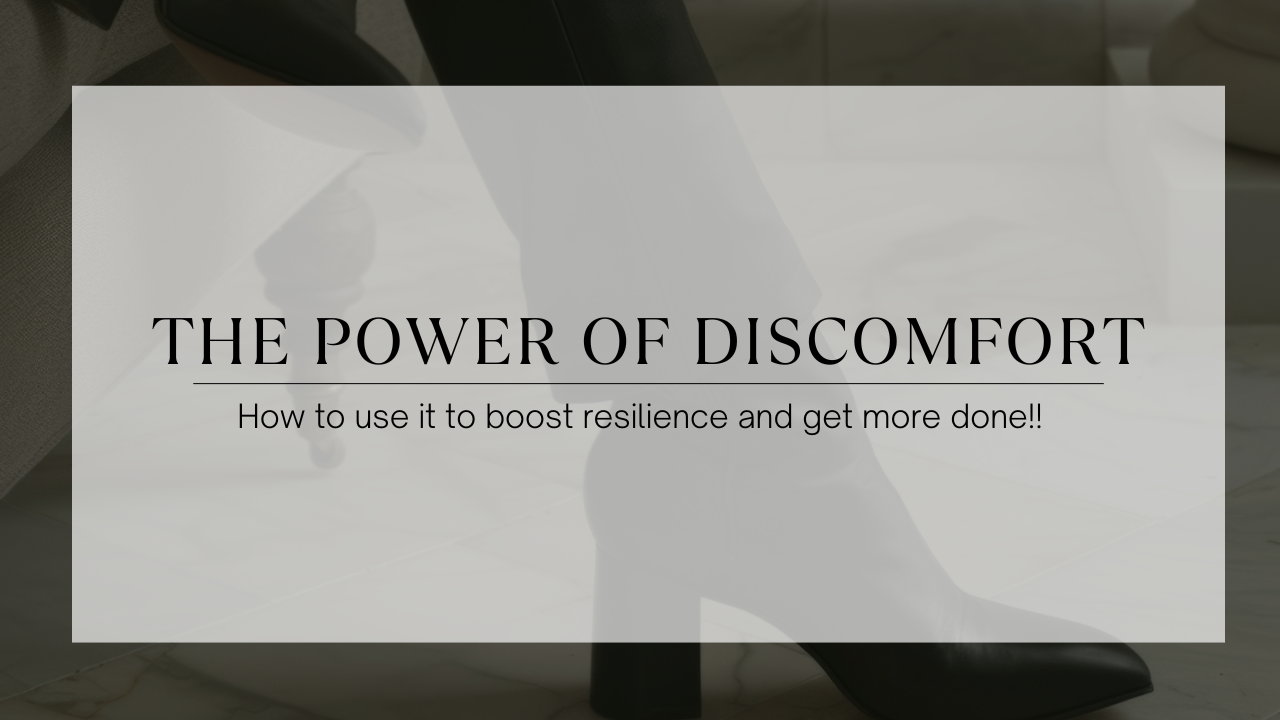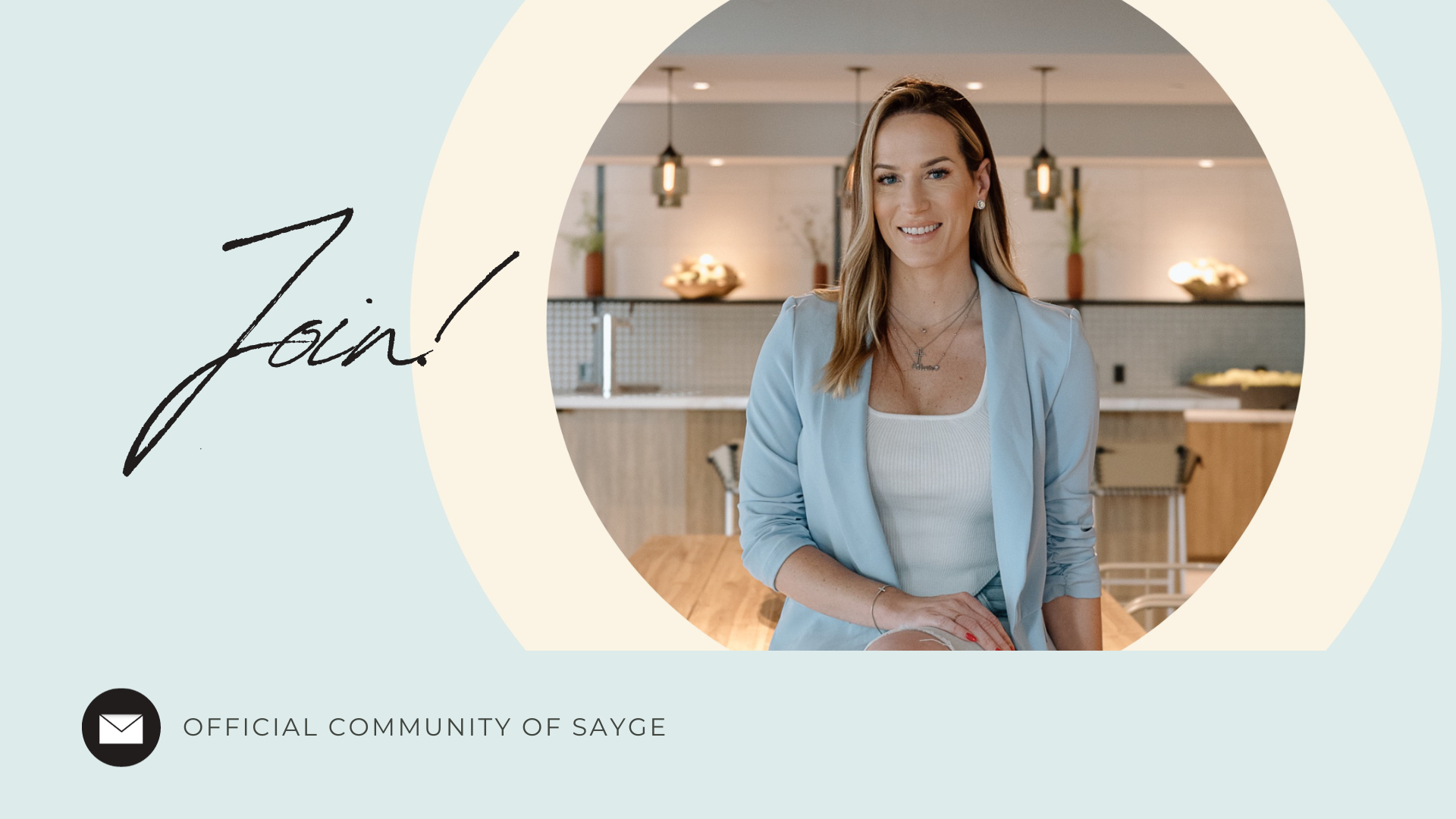The Power of Discomfort: And How To Use It To Boost Resilience & Get More Done!
Oct 25, 2024
We’ve all been there—staring at the mountain of tasks we need to complete, knowing what we want to achieve but feeling paralyzed by the discomfort of getting started. That hesitation, that emotional tug pulling us away from progress, feels overwhelming. It’s easy to assume that if something feels hard, we’re on the wrong path. But what if I told you that this discomfort is exactly where you need to be?
Growth isn’t easy, but it becomes more manageable when we stop resisting the discomfort and start working with it. By voluntarily exposing ourselves to discomfort in manageable doses, we’re not just testing our limits—we’re training our nervous system to withstand the demands of change. This is how growth becomes easier over time.
Understanding the Science of Discomfort
From a neuroscience perspective, our brains are wired to seek the comfort of familiarity and avoid discomfort. When we face new challenges—whether it’s learning a new skill, stepping into a leadership role, or finally launching that business idea—our brain perceives this as a threat to the status quo. The discomfort you feel is your brain’s way of protecting you from the unknown. It wants to pull you back to what’s familiar and safe.
But here’s where the opportunity for growth lies. When you repeatedly expose yourself to controlled, voluntary discomfort—whether through trying something new, tackling a difficult task, or pushing through a challenge—you signal to your brain and nervous system that discomfort isn’t something to fear. Instead, it becomes a signal that you’re expanding your capabilities.
The key is balance. Pushing too hard, too fast can overwhelm your nervous system, leaving you feeling stuck and paralyzed. But by alternating periods of challenge with moments of ease—where you return to familiar tasks or give yourself time to rest—you allow your nervous system to adapt and recover. This fluctuation between discomfort and ease builds resilience and makes the process of learning, adapting, and growing less daunting.
🌟 The Cycle of Growth: Challenge, Recover, Repeat 🔁
Let’s break it down: growth requires two key components—challenge and recovery.
When you challenge yourself by stepping outside your comfort zone, whether it’s launching a project you’ve been putting off or committing to a workout routine, your brain and body are put under temporary stress. This is where the discomfort shows up—new neural pathways are being created, and your nervous system is working to adapt to the unfamiliar.
But just as important as the challenge is the recovery phase. This is where you return to tasks you know well, areas of your life where ease can be met. It could be as simple as going for a walk, completing a task that’s second nature to you, or allowing yourself to take a breath after a difficult stretch. This phase is crucial because it allows your nervous system to integrate what you’ve learned, strengthening your capacity to handle discomfort in the future.
Over time, as you cycle through periods of challenge and recovery, you build a tolerance for discomfort. The once daunting tasks that felt impossible become more manageable, and you start to see that growth doesn’t always have to feel hard. It’s not that the challenges themselves become easier—it’s that your ability to handle them improves.
Expecting Discomfort as Part of the Process
One of the most empowering shifts you can make is to stop resisting discomfort and start expecting it. When you expect discomfort, you remove the element of surprise. It no longer feels like a barrier, but rather a signpost that you’re on the right track. The discomfort is proof that you’re challenging yourself, learning, and moving forward.
Imagine approaching your next big project or personal goal with this mindset: “I know this is going to feel uncomfortable, and that’s okay.” By accepting the temporary discomfort as part of the growth process, you take away its power to derail you. You shift your focus from the struggle to the outcome, knowing that the discomfort is only a stepping stone to get you closer to what you want.
The Familiar Becomes the Foundation for Growth
Returning to the familiar doesn’t mean retreating—it’s a vital part of the process. When you return to what feels easy, whether it’s a routine task or a comforting habit, it allows your nervous system to reset and regain strength. This creates a safe space for recovery, making it easier to dive back into the discomfort when you’re ready.
Think of it like training your muscles at the gym. You wouldn’t lift the heaviest weights every single day without rest. You alternate heavy lifting with lighter exercises to build strength gradually. The same applies to your emotional and mental growth. You push, you recover, and you repeat the cycle, building tolerance and resilience over time.
Making Growth Feel Easier
The more you expect and accept discomfort, the easier the hard parts of growth will feel. Instead of viewing discomfort as a roadblock, see it as a natural part of the journey. With every small step into discomfort and every return to ease, you’re building the fundamental skills that make change possible.
Growth doesn’t mean you’ll never feel discomfort—it means you’ve built the resilience to move through it. By embracing the cycle of challenge and recovery, and by training your nervous system to handle the ups and downs of change, you’re making growth feel less overwhelming and more achievable.
So, the next time discomfort hits, remember: you’re not just surviving it—you’re training for something bigger. Expect it, accept it, and know that on the other side of that discomfort is the progress and success you’ve been aiming for. You’re building the skills and resilience needed to get there, one step at a time.
You got this! 👏
In case you missed it, the next Abolish Procrastination program start date has been released! 🤩
Start Date: January 2, 2025
Is this your breakthrough year? Join me and an intimate number of like minded achievers who are ready to break the cycle of procrastination and start moving forward in there life and business!
Click to learn more ➡️ HERE


